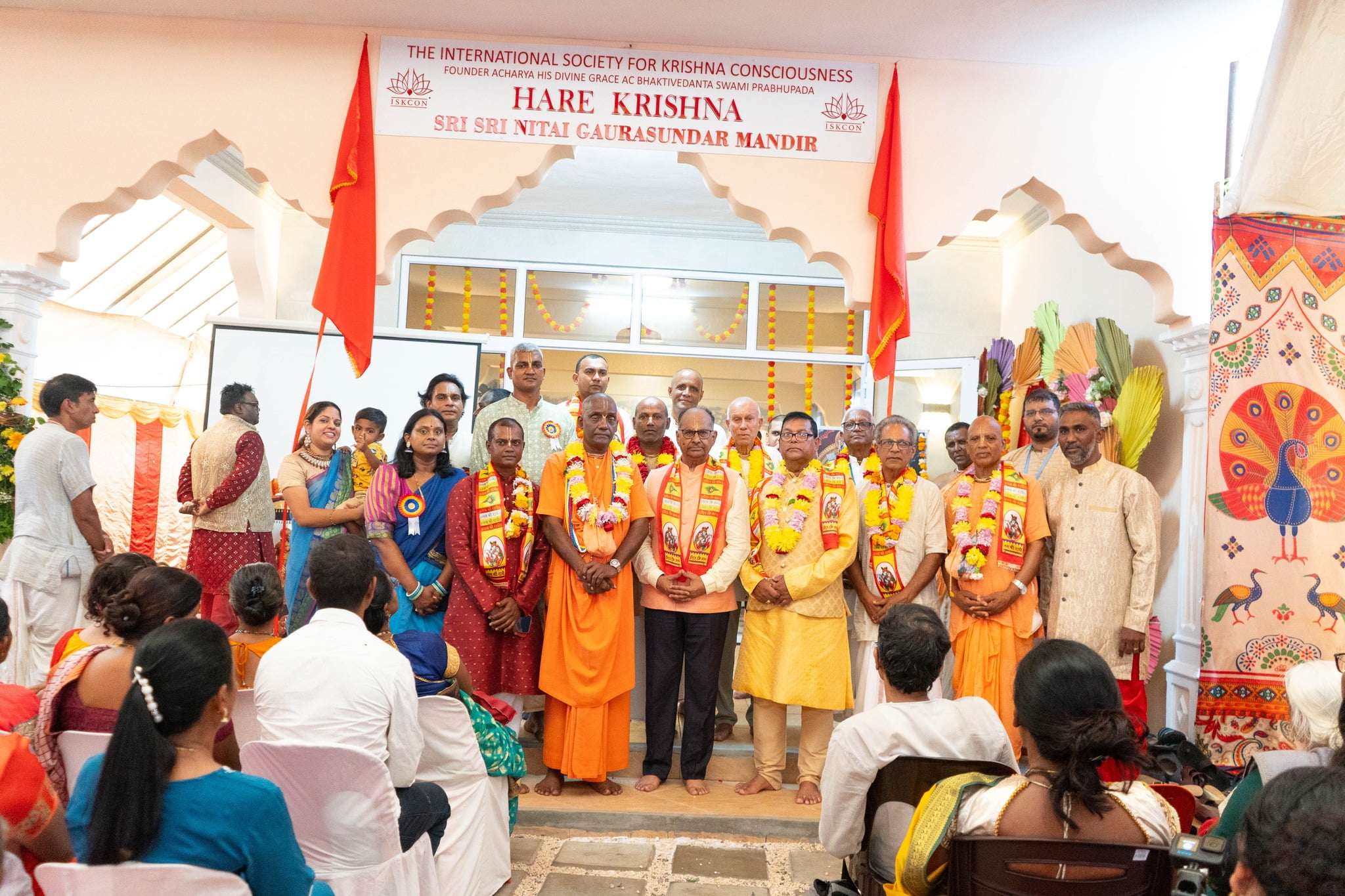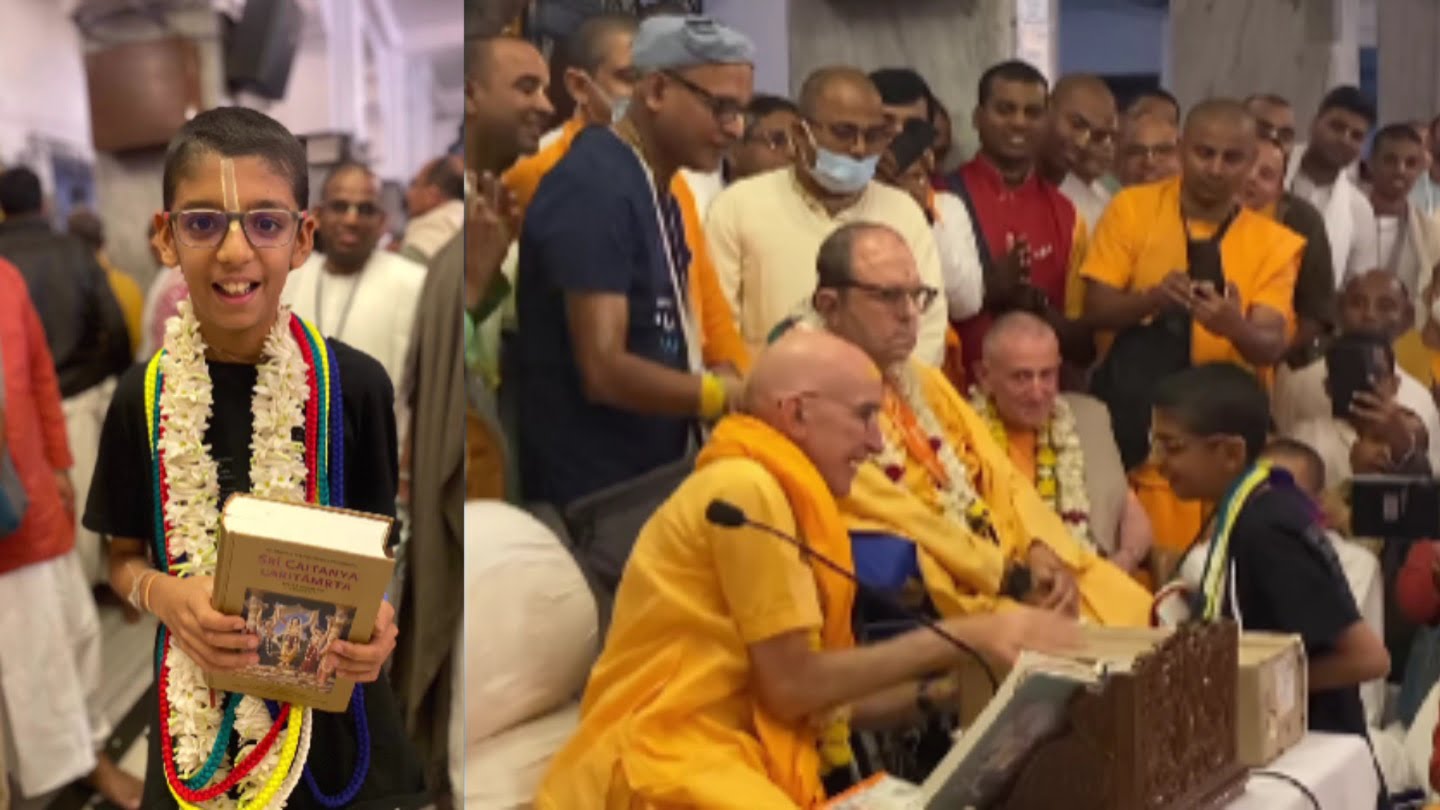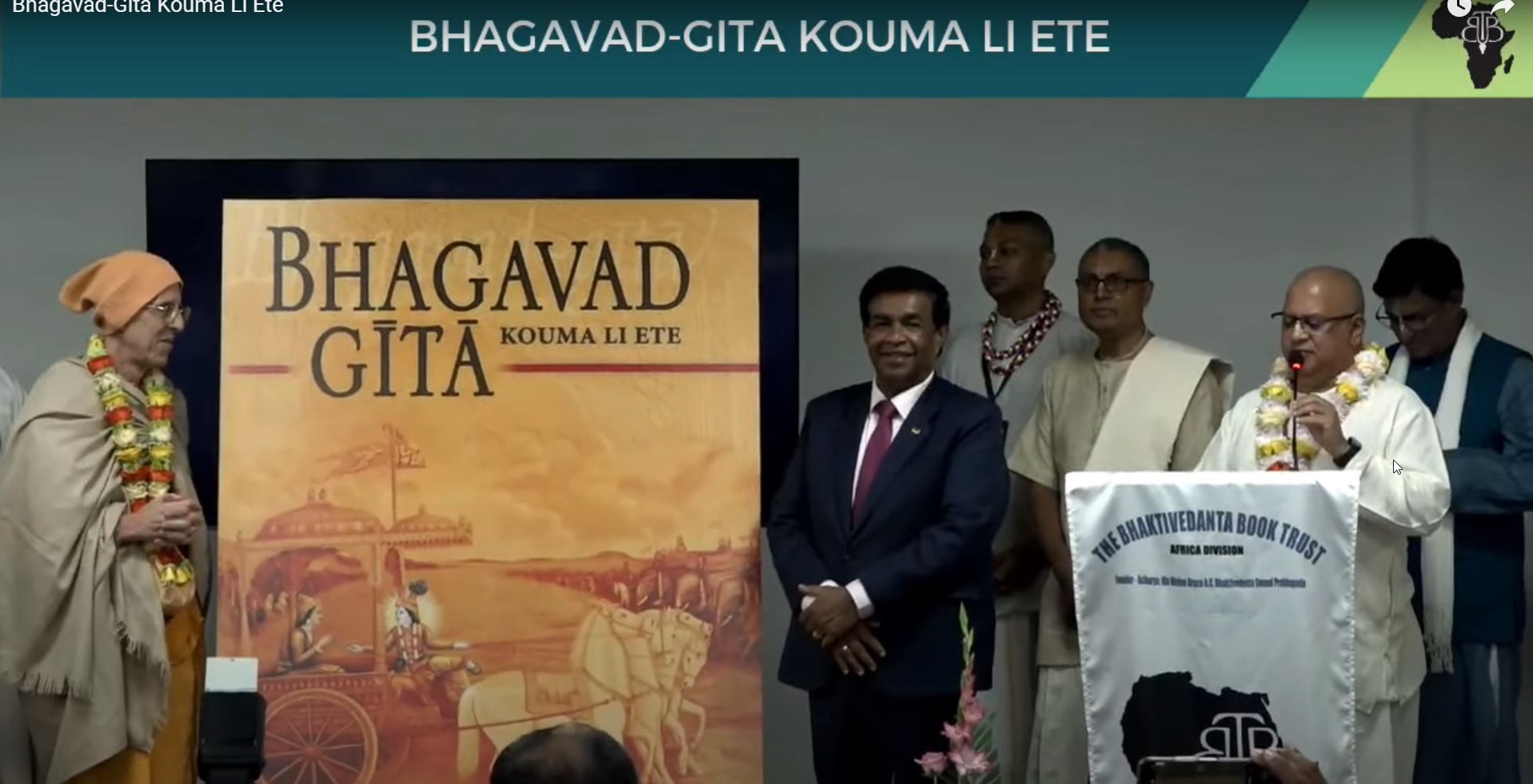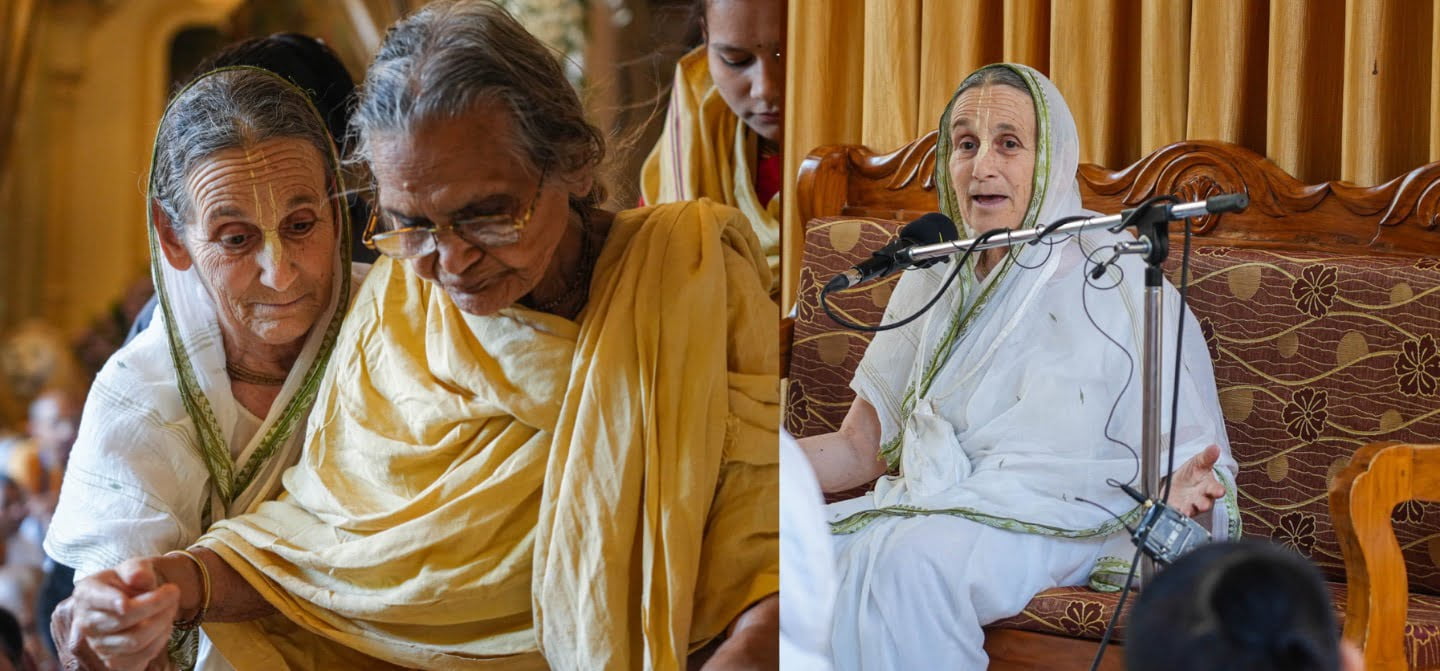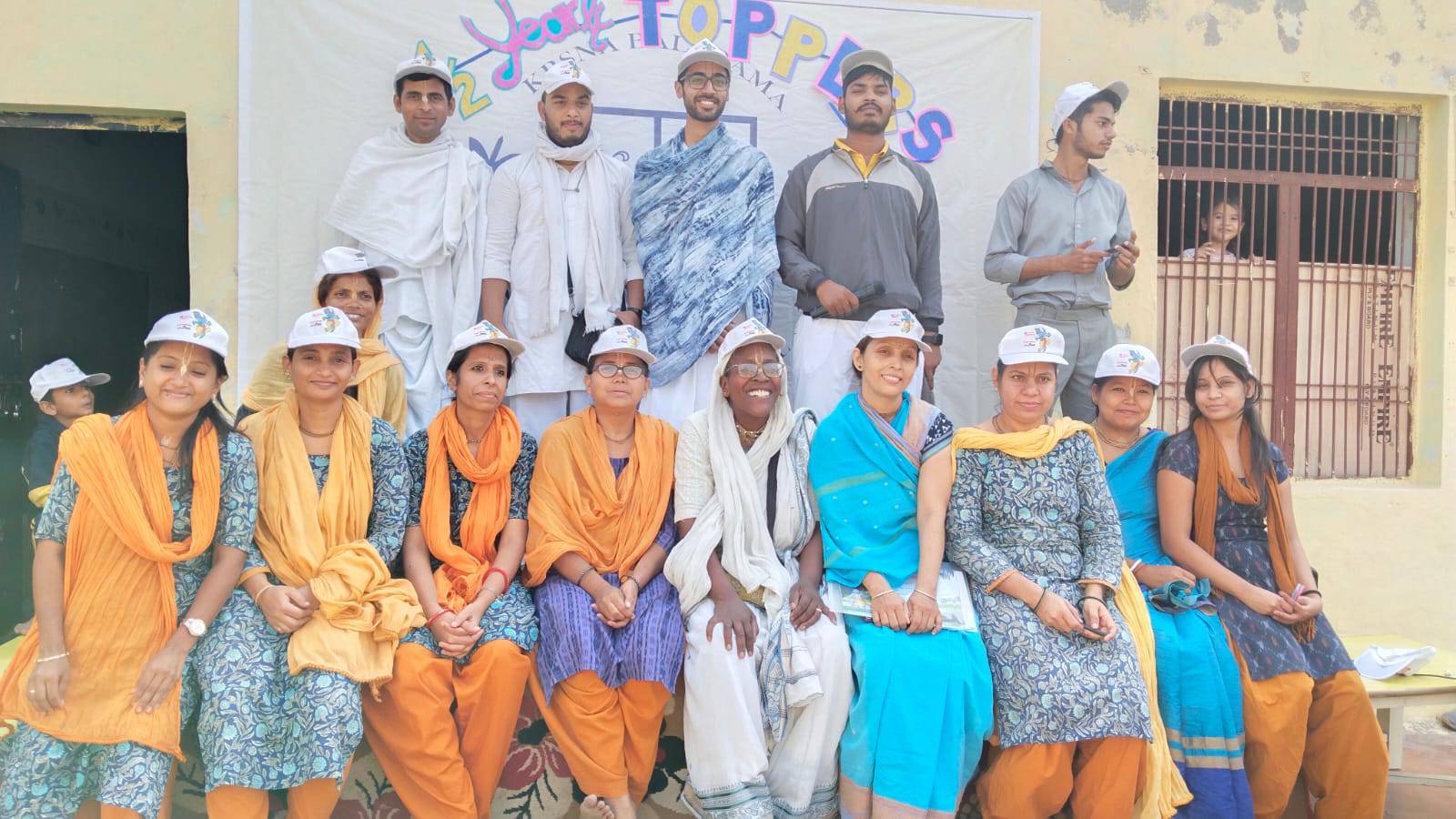Communications Minister is Distinguished Speaker at Religious Freedom Event in Washington, D.C.
By Amrita Hari | May 25, 2018
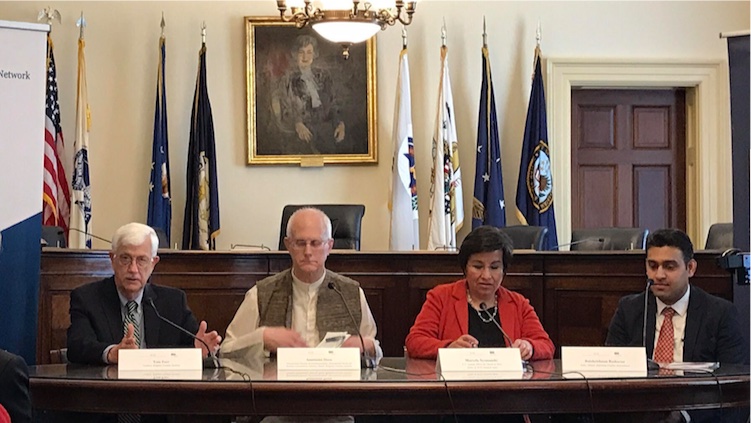
On May 8, 2018, the Religious Freedom Institute (RFI) held a policy briefing on Capitol Hill with government leaders, academics, and experts on religious freedom issues, including ISKCON’s Minister of Communications, Anuttama Dasa.
The Global Crisis in Religious Freedom: State of Play and Recommendations brought together leaders and important players in the religious freedom world, including Ambassador Sam Brownback, the U.S. Ambassador-at-Large for Religious Freedom, U.S. Congressman Jeff Fortenberry, and Mr. Jan Figel, European Union Special Envoy for the Promotion of Religion or Belief Outside the E.U.
The event began with remarks from Dr. Thomas Farr, President of RFI, and was followed by a panel where representatives from the Alliance Defending Freedom, Hudson Institute, and RFI reflected on the current state of religious freedom. Many of the remarks focused on the need to understand religious freedom as a human right of all people and not just a few. Panelists also referred to recent global research that has documented that where religious liberty flourishes, other fundamental rights and freedoms also flourish. Unfortunately, however, religious freedom is under attack in many parts of the world leading to the persecution of many innocent people.
The second panel focused on what could be done about the current problems. Anuttama Dasa spoke on this panel, along with representatives from Aid to the Church in Need and Alliance Defending Freedom International. He began his remarks by quoting Bhagavad-gitaverse 3.21:
“Whatever action is performed by a great man, common men follow in his footsteps. And whatever standards he sets by exemplary acts, all the world pursues.”
Anuttama’s talk touched on ten different recommendations for the United States and countries around the world.
The United States should:
- Be more self-critical about its own issues with religious freedom.
- Be careful to not prematurely buy into any one narrative about tensions that exist around religious freedom.
- Be aware of the big picture of historical and other factors that impact religious tensions around the globe.
- Push “its friends” as well as “foes” and be even-handed in promoting religious freedom.
- Increase the efforts at its State Department and Embassies to teach its diplomatic staff about local religions, and other sociological and cultural conditions.
- Continue to bring religious leaders to the US to see the diversity present, how America struggles with its diversity, and how it is enriched by it. And, bring diverse religious leaders from America when government leaders travel with delegations to other countries, thus helping to promote interreligious understanding.
- Advocate for fact-based education about religion in American schools and abroad.
- Promote the development and dissemination of shared statements of principles regarding appropriate means of missionizing and preaching.
- Promote awareness of fact driven research that demonstrates that where religious freedom is the norm—or in proportion to its presence—societies benefit overall, including their economic and cultural development.
- Foster interfaith dialogue and seeking a global statement of shared human values.
His remarks were well-received with Dr. Farr noting that they came from a place of humility and understanding.
The event closed with remarks from Mr. Jan Figel and Ambassador Brownback. Mr. Figel noted that contrary to popular belief, religion is not the problem, but rather it contributes to human progress. Ambassador Brownback added to his point by citing evidence that shows that where there is a rise of religious freedom there is also increased security and a decrease in terrorism. An increase in religious freedom has also been shown to positively affect the growth of a country’s economy. Security issues and economic growth are many times viewed as obstacles to religious freedom in certain countries.
* * *
The Religious Freedom Institute is an independent, non-profit organization dedicated to advancing religious liberty around the world and helping those who have been persecuted because of their religious beliefs. Anuttama Dasa serves on RFI’s Board of Advisors and helps provide advice and counsel on a variety of issues related to religious freedom.



